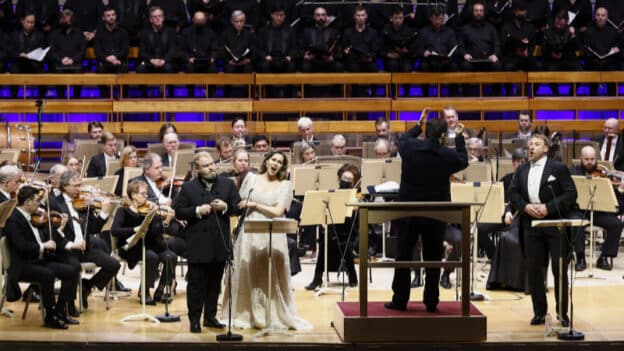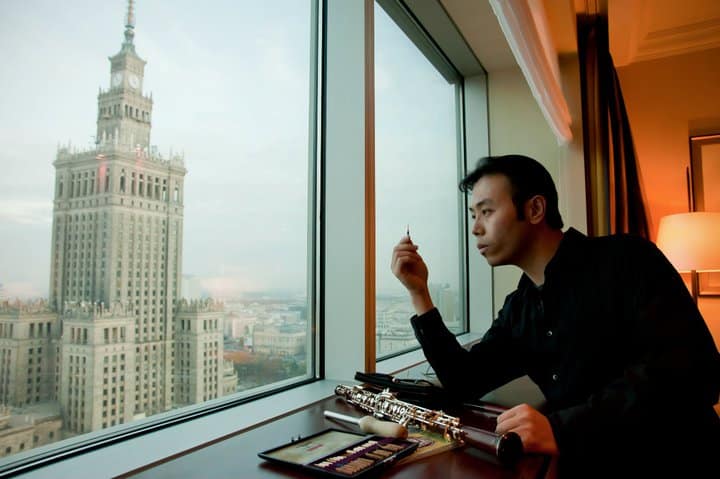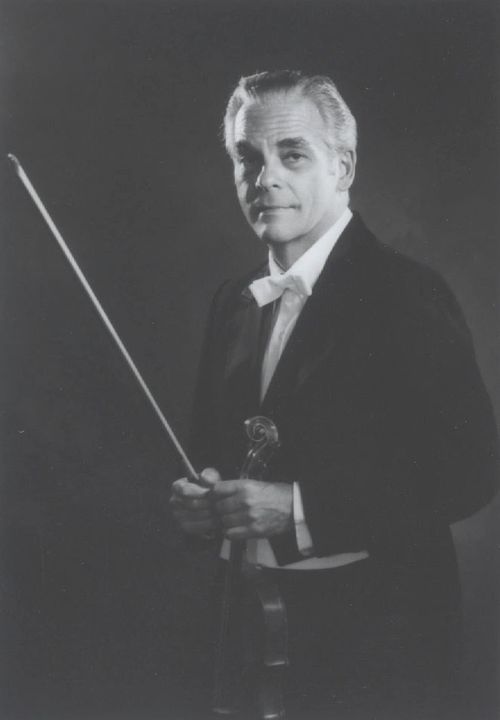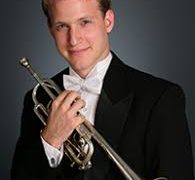Veteran NY critic was ‘climbing the walls’ at Boston concert
OrchestrasThe author Joseph Horowitz has shared his impressions of the Boston Symphony’s rocky visit to Carnegie Hall last week. He reckons the orchestra is in real trouble.
Excerpt: …My wife Agnes and I left at intermission. We were climbing the walls.
We were seated opposite the first violins, about 15 rows back. I would not even call this section a section. It was an eclectic group of violinists, disengaged to varying degrees. At the rear were two ladies who liked to chat. They did so in between scenes. At times they barely moved their bows. At the end of the first half, when the orchestra rose to bow, it took them a long time to leave their seats and they did so chatting.
The conductor is a mystery to me. When he asked his violins for a big response, the reaction was sluggish. I see that he conducts in Leipzig, Vienna, Berlin, that his Shostakovich CDs win awards. I encountered him once before, leading Tchaikovsky’s Pique Dame at the Met. I was with a distinguished pianist; we both found it slack.
Read on here.






I can understand why critics have no monuments to them.
Indeed Ron (imagine the vandalism!), but they are still legends in their own minds.
And an alternative view rather more focused in its description of events and with a critic who did their job – i.e. stayed to the end.
it seems every other sentence is a advertisement for a paper, book or link to another of Horowitz’s forgotten ramblings. self-important and things were always better in the past…Next
JH did admirable work in unearthing the Wagner performance tradition in America around 1900, which withered-away later-on.
What’s with the BSO bashing here? On an almost daily basis, we now read about “the most uneven maestro”, “rocky outings with the BSO”, etc. The orchestra members, many of whom I know well and perform with, mostly like Nelsons a lot. They like the fact he rescued the BSO from record company purgatory and got DG as their label. They and the audiences like the much broader repertoire and new music, by and large. All the pearl clutching by Norman and Joe et alia is becoming stale. Most longtime audience members feel the orchestra is the best it’s been in decades.
It goes along with all the Metropolitan Opera bashing, YNS bashing, and anything else that is deemed bashable on any particular day. From the very first sentences I read of the Horowitz article, I knew this was an agenda driven piece. When he started comparing the South Dakota Orchestra with the BSO, I knew he had completely “jumped the shark”.
I suspect that with Muti gone, it was time to find a different orchestra to bash other than CSO. NY Phil is in between conductors, Cleveland never seem to set their feet wrong and of course one can’t possibly say a word wrong about Yannick and Philly since the woke mob would beat them to death… Boston and Nelsons it is I guess
This site bashes Yannick all the time – and many of the commentators here have a barely concealed homophobia when they do it. Try again.
what rubbish. we have great admiration for him.
Yes indeed. A search for Yannick on SD throws up some quite snarky headlines, along with some neutral ones.
“et alios”
Those of us who live in Boston, who’ve been attending and listening to the BSO for decades, and who actually care about this wonderful orchestra are on a very different page than these critic buffoons/know-it-alls with agendas. And that’s perfectly fine – these critics need to have something to rant about – I suspect to keep their minds away from anything that’s self-aware.
I’m not remotely advocating for haciographic cheerleading. But let’s at least have an actual basis for the criticism rather than ridiculous agendas.
Spot on.
There’s always something intrinsically comic about these self-appointed US commentators, bloviating about major European artists from their bunkers full of Bernstein and Reiner discs somewhere in Podunk, Indiana.
Spot on!
Cranky old man shakes fist at cloud!
Boston is one of the US Big Four: it is only logical to expect a high standard from them. But Bostonians should exercise caution. In expecting great artistic results from your orchestra and conductor, take the time to appreciate what you have.
Still unhappy? Watch these videos and cheer yourself up. At least you have not ended up like a disgraced former Big Five, forced to play funiculi-funicula to please an arrogant Italian baloon; with your principal oboe – a former student and protégé of one of the Italian’s Philly buddies- bombing his way through scales; and your principal trumpet boorishing his way through any piece (from ‘boor’, not sure that’s even a word but no English words are available to describe his playing).
https://www.youtube.com/watch?v=QKktroGRKNQ
Or, you are not guilty of downgrading Beethoven to a lead standard (from gold to lead, that is)
https://www.youtube.com/watch?v=1ZWvG_OJ6pI
Be Happy Boston, Chicago has showed you how far you are from the bottom.
As usual, utter nonsense from Chicagorat.
Muti acts sort of like a clown in the first video, in my opinion; as the cranky old man that I am , I am struggling to find it funny
OK, Aus Italien is not exactly “great Strauss” but hardly anyone plays it nowadays and Muti is one who does and who does it well (he is better than Kempe for example). There’s nothing “boorish” about the principal trumpet (certainly not in this excerpt) I have heard them live and he was superb in Pictures. The oboe professor at Curtis to whom you refer (Dick Woodhams) was principal in Philly before Muti arrived there and has taught many oboeists now playing in US orchestras passing on the approach of John De Lancie and, before him Tabuteau. There’s nothing wrong with what’s played in the excerpt, it’s what Strauss wrote and if you think Ray Still would play it better I doubt it. The Beethoven 7 is perfectly fine, in fact a well known music critic and writer acquaintance of mine once told me only Klemperer and Muti got the rhythm right in the finale (don’t tell Carlos Kleiber!)
I thought it was always the US “big five” – Boston, New York, Cleveland, Chicago and Philadelphia. Yes? No?
Didn’t a NYT music critic get sacked for leaving a concert early and writing a glowing review of the soloist (who had cancelled)?? Horowitz should be sacked for sheer incompetence.
There are such stories elsewhere too. One of my professors in Vienna had told me of a critic who reviewed a Brendel recital going by its originally announced program, not the one actually performed by the pianist. Moreover, haven’t we all occasionally read reviews so generic, that they could have been written without attending the concert? Some probably were.
It’s an urban myth / musician revenge fantasy, found in its most potent (and, in the UK, most often repeated) form in a novel (ie a work of fiction) by Kingsley Amis.
No-one is ever able to provide a name for the critic or a link to the review – barring a single case in Russia in 1915, which related to Prokofiev’s Scythian Suite. If this happened a lot, you’d think someone would have been able to come up with at least one documented instance somewhere in the English-speaking world in the past 109 years.
Virgil Thomson( also a nasyty piece of work) left a Horowitz recital( the real one ,Volodja) in the intermission in the 40s. V.H. changed the program….Thomson had made a fool of himself.
I found it, it’s Bernard Holland.
Hard to sack someone who doesn’t have a job. Horowitz wrote for the Times briefly in the late ’70s. To call him a “veteran NYT critic” is an exaggeration.
Carnegie Hall is unusually generous with press tickets, especially compared to other NYC venues, and I imagine that’s how he was able to get himself into the concert.
I heard the second program (Rite of Spring and Ravel Left hand concerto). I believe Mr Horowitz’s concern with the orchestra itself is overstated. I believe his comments would have more credibility if he had stayed for the whole performance. The concert was well reviewed by others. He used the word “slack” to describe Nelsons’ conducting. I think that’s right. Last season Nelsons and the BSO gave the most tedious and boring performance of the Rachmaninoff second symphony I can remember ever hearing. A few weeks later YNS and the Philadelphians showed how it should be done. The BSO hung onto Ozawa for about 10 years too long. I hope they learned from that………………
Many, by the way have walked out on Horowitz concerts in Brooklyn. Not the guy I’d go to for music criticism on anything.
Victory has a hundred fathers, defeat is an orphan. Never truer than when musicians get a bad review.
Reprise: “There’s always something intrinsically comic about these self-appointed US commentators, bloviating about major European artists from their bunkers full of Bernstein and Reiner discs somewhere in Podunk, Indiana.”
——
Beyond his review of the concert of the BSO, I read the other piece by Joseph Horowitz and I don’t think his creative taste or opinions can be pigeonholed the way I at first assumed they might be. He seems to realize that in the age of social media, rap/hip-hop, shrinking budgets and short attention spans, the formula of over 40-70 years ago regrettably no longer works in the 2020s.
——–
Joseph Bernstein: “Quite obviously, mine are inconvenient opinions. You will not find them emphasized at meetings and workshops of the League of American Orchestras. They do not mesh with prevalent norms for administrative staffing. Orchestras lack resources to adequately scour and contextualize the American musical past.”
“Conductors lack the skill, the time, or the interest to fashion the teaching tools deployed by Delta David Gier—or by Leonard Bernstein decades before him. For many of our larger orchestras, shrinking audiences will logically dictate fewer concerts. And new audiences, generally, will present new needs.”
I’m a violinist and have played a few concerts curated by Joe Horowitz as well as attended a couple as an audience member. Those concerts have been some of the most under attended I’ve played or watched. He’s an elitist snob who thinks he’s smarter than everyone else – I once saw him be very rude and disrespectful to a well known and respected conductor. He’s not someone to be taken seriously.
I heard the Saturday performance of Lady Macbeth in Boston and the midweek one at Carnegie Hall. I found each to be among the most extraordinary evenings I’ve spent in a concert hall in recent years, and judging by the audience response on each evening, I wasn’t alone. As to how the BSO are playing, I think they’re in outstanding form.
Nelsons’s performances certainly do seem to polarize people. I go to as many as I can, and I can still call to mind his Shostakovich 7th, 15th, a Bruckner 7th, and many more. I find his approach revelatory, though equally, there are many lauded contemporary conductors I don’t respond to. Chacun à son goût…
I was at the Carnegie concert and have seen LMOM staged 5 times. Nelsons, the BSO and soloists were outstanding! One of the great concerts I have attended and have been to hundreds if not thousands. I read Horowitz’s review and wondered if he was experiencing the same concert I did. Other friends who attended the Carnegie concert shared my enthusiasm for it. I hope Nelsons will add “October” and “The Execution of Stepan Razin” to his BSO Shostakovich cycle on DG.
Boston Symphony acolytes need to get out more. If there is a center of the symphonic universe it is in Cleveland.
Cleveland Orchestra acolytes need to broaden their musical viewpoint. If you think Cleveland is the center of the symphonic universe, you need to get out more; it’s a bit world out there.
Joseph Horowitz is one of the most intelligent, informed, and deep thinking critics around. He understands the problems orchestras face and has proposed valuable suggestions. He also curates concerts that bring to classical music new impulses it needs. He also writes about the history of music in ways that bring new insights. One of the problems orchestras face is that tutti string players, who often have the abilities to be soloists, feel like they are on a treadmill marching in unison with 30 other people. They become dissatisfied and disengaged. He has the eyes to see things classical music fans usually don’t see. For the sake of the future of classical music, audiences and orchestras would do well to listen to him.
Put one of those tutti strings in a principal brass chair for an hour. They’ll get a whole new appreciation for tutti.
I don’t think so. The beer hall behavior of all-male sections and the paltry brass repertoire aside, many tutti string players would love to have more challenging musical endeavors.
Put a principal brass in a 1st violin tutti seat for an hour and see how their brains cope with a pad of music 10 times thicker than they’re used to.
How do you reconcile this terrible review with the laudatory one (calling the orchestra ‘spot on’) on the same website?
How much does everyone here calling for a “critic” to be “fired” think ArtsJournal pays a 76-year-old blogger?
Ah yes, dear old Joe Horowitz…..if only we did more Chadwick.
Laughable decision….just because it doesn´t fit your personal agenda.
No. Because his Toscanini book was a turning point in the history of conducting and he has written other major works besides. What, behind a shield of anonymity, have you done other than spew abuse?
Yes that Toscanini book is terrific.
LOL.. A turning point in the history of conducting?
“I encountered him once before…(Pique Dame at the MET was years ago)” ” I see that he conducts..”..” Mr.Horowitz seems to have stopped listening to live concerts and live broadcasts and CDs 40 years ago.Says a lot about his knowledge of the music scene of today. Stuck in the 40s, and he should stay there,listening the umpteenth time to his Furtwängler recordings
“Stuck in the ’40s?”
The problem today is that the ‘modern’ conductor/concert-goer and the “music scene of today” is that it knows nothing about the national styles of the past. Everything has become homogenized. Furtwängler knew Strauss. Koussevitzky knew Stravinsky as did Monteux. At the time the BSO played in a distinctively French style. Reiner knew Bartok and the Hungarian style. Mravinsky premiered many of Shostakovich’s works. Paray was a genius in his interpretations the French genres of symphonic music. Never mind you all have the chance to listen to the historical piano rolls of Mahler for reference to rubato and phrase, or the recording of Josef and Rhosinna Lhévinne playing the piano transcription of “Fêtes”, where in the French style of times they double-dot all the sixteenth notes. How many conductor’s today understand the difference and rather adhere to the printed score they see before them. Watch the video of Mravinsky conducting Shostakovich Symphony no. 8 for a more complete understanding the Russian style of the time.
Don´agree.Performing standards have increased immeasurably. The BSO Monteux Rite of Spring recording is a total mess.They simply couldn´t play it at that time.Strawinsky hated Koussevitsky´s performances, because he couldn´t even keep time.Furtwängler may have known Strauss, but he didn´t conduct much of his music,and ,Furtwängler is the exact opposite of what Strauss did (Reiner,Szell,Steinberg or Böhm are much closer to Strauss´own recordings,and so is Franz Welser Möst today.In fact ,FWs speedy, fluent no nonsense approach maybe almost shocking to our ears used to plushy, bombastic Strauss.But he is the only one who follows Strauss´own recordings, you may like it or not.)
Musicmaking ,like life itself,evolves and changes all the time. For me, life is too short to dwell on the past. I rarely listen to the same performance twice.There are new fascinating concerts to listen too from all over the world each day.And,with the advancing of old age, i don´t want to miss too much.
After a 45 year life as an orchestra musician, i find music making is so much more stylistically variable,challenging, and versatile today than in my early years,when i started out,and when orchestral music was dominated by a few overfeted “maestri”.
I am glad to see so many fantastic female colleagues now, both in the orchestra and on the rostrum.And the quality of orchestra playing has improved so much on all levels over the last decades.So much has changed for the good, and,both as a player and listener,living in those times now.And i hope to continue as long as possible as freelancer, after my mandatory retirement now.
Musicmaking hasn´t become more homogenized.
It´s much more varied than in the days when Bach was performed like bad Bruckner and Mozart like Rondo Veneziano. And fascinating new music appears all the time.About 30 percent of the music i listen to and love is by living composers. I am totally averse against the idea of repeating things frequently, in life and art.The joy of hearing,or seeing something the first time and exploring unknown territory is almost an addiction to me….
The Shostakovich video you mentioned…..Maybe it was the style of playing in Soviet times.As a brass player, the horribly crude playing, the spurious intonation , the laughable amount of vibrato( it sounds like a circus band), the total lack of blending together as a section(apparently no one listens to each other,everyone blares as loud as possible without any regard to balance and intonation) makes the performance absolutely unlistenable to me.
Okay, let’s take a closer look.
Of course, Monteux’s ‘Sacre’ was a mess. It was ‘new’ music but still very French in the style of playing. Stravinsky had to show the principal bassoon the fingerings for the opening written in the highest register of the instrument. He wrote for an expanded wind and brass and percussion section, and as a result only a fraction of the strings could fit into the pit at the Théâtre des Champs-Elysées. Hence all the divisi writing for strings. How many conductors take this into account when performing this in concert. Parenthetically you can bet there was a lot of vibrato coming out of that pit.
Furtwängler conducted and recorded Tod und Verklarung, Don Juan, the Metamorphosen, Till Eulenspiegels lustige Streiche, and the
Vier letzte Lieder.
Yes, music evolves but look online for the accounting of George Szell and his scathing rebuke of how his Assistant Concertmaster Anshel Brusilow conducted a rehearsal of Till Eulenspiegel with no comprehension of the story that was being told through the music. Consider also how often today’s horn players play Til’s opening appearance in the tone poem. You most often hear Til-Eulen-spie-GEL when it should be Til-Eulen-SPIE-gel.
Now take ballet. Many of the great 20th Century works have become a mainstay in orchestral concert performances, and conductors too often ignore telling the story that is portrayed in the music if they were conducting for dancers. Miraculous Mandarin, Petroushka, Romeo and Juliet, Ala and Lolli, Rodeo, Daphnes. The beauty of ballet is the combination of music and emotion vizualized through dance.
Articulation: When Peter the Great opened Russia to Europe a great change in culture began. St. Petersburg became a landing place for many poets, novelists, and artists including musicians. The French and German were predominate among them. By Tchaikovsky’s time Russian orchestras played with the harder articulation of the French combined with German sustained length. That’s why Mravinsky’s recordings of the opening fanfare in the 4th Symphony is so revealing.
In the ballet Petroushka Stravinsky always referred to the cornet solo during the scene “In the Moor’s room” as a mechanical, danced by the ballerina. How many trumpet players know this? In the following waltz the descending interval interjections by the cornet are mean to portray the Moor laughing with his shoulders bobbing on each downward note of the arpeggio. How many trumpet players know this? It is more often played as a technical study.
Vibrato: in the French style the violins and violas hold the bow differently producing a lighter sound (much different than the Russian or Galamian schools). Vibrato is constant but long notes are released. Think about this style when you listen to the flute solo from Daphnis. So many principal flutes sit on the long notes as opposed to releasing them. This solo is more often played too slowly as opposed to at a more danceable ‘ballet’ tempo. You also often hear vibrato added by orchestral musician after beginning a note, ending up in a ‘wow’ in their sound. And notice the dreaded ‘pinky’ finger and no vibrato at all. It’s like the dead sound of the open string and becomes a habit that invades all styles of compostion.
The trumpet solo in Shostakovich 8: When Rozhdestvensky rehearsed this in London with one of the big orchestras. He repeatedly motioned for the principal trumpet to play louder. After repeating this section over and over he finally stopped and said something like, “You must play this like a tank! You sound like a bicycle!!”
The trumpet playing in Mravinsky’s video which you disparage is remarkable. Definitely a tank. Notice how much in sync the violins are as far as where they start on the bow, bow length and articulation. Amazing discipline. Remarkable sound. Chilling, which is what was meant to be as Shostakoving portrays the bombing of Leningrad.
To show how subtile differences can be, listen to the difference in brass articulation from the videos of Bruckner symphonies performed by the Vienna Philharmonic, the Berlin Philharmonic and any American orchestra. In Vienna the pickup notes to the big brass entries are played with a ‘dah’ giving us a ‘dah-taaaah’, dah-tah, dah-tah, dah-dah-tah. The Berlin Brass begin with a ‘tah’; so ‘tah-dah’, etc. In America it’s more likely ‘tah-tah’ which gives a heavyness to the playing.
By the way, Mr. Lebrecht’s defence of Horowitz’s writing is spot on.
Very interesting contribution. I learned something. And I agree about the Mravinsky trumpeter in Shostakovitch 8 (the trombones in the same movement are phenomenal). I was just listening to a live performance from the Proms by Haitink and the Concertgebouw. Really well played of course but the trumpet – much too polite. A bicycle. I loved Rozhdestvensky.
There are two contrasting thoughts on the change of Classical music. One concerns interpretation, the other technique. It is hard to deny that technical standards haven’t risen in recent decades, at least in the spread of technical competency, but it is also hard to argue that interpretation is more homogenized, and the national schools of playing have narrowed a great deal. When I hear recording like the Mravinsky mentioned above, I hear a very powerful interpretation coupled with a sound of the orchestra that fits with the music, but I also hear technical faults, at least in the winds. Of course, if one listens as a brass player (I am a woodwind player), blend and technical execution are 99% of the result, and interpretation is more a matter of realizing the standard way of doing things flawlessly.
Well you’re both right, “Been there” loves the national styles of a Paray, Munch, Mravinsky, etc and those have to a great extent disappeared over the last 50 years. Russian orchestras now use American made trumpets and trombones etc. Only the VPO has instruments locally made and a “traditional sound.” You are right that playing standards are much higher than even 20 years ago, especially string playing (compare the LSO in the 70s with today for example). I will confess to a great love for that old Soviet braying brass sound (with all the insane vibrato). It’s the sound Shostakovitch heard in his head when he composed (though he may have also loved hearing Karajan and the BPO play!). It’s probably the sound Tchaikovsky heard. I will never forget a Poem of Ecstasy in 1990 by Svetlanov and the USSRSO in NY – the brasses were unbelievable (raw, sandblasting sound). Exciting beyond measure.
Well,my remarks concern not only the standard of orchestral playing, but also the musical interpretation.
First, a few corrections…
The Soviet style ,” sandblasting” ,vibrato overleaden brass playing was certainly not what Tchaikovsky and Scriabin heard in their days.In the late 19th and early 20th century, the russian school of trumpet was dominated by Vassily Brandt and Oskar Böhme, both of German origin..Russian trumpet players played on rotary valve instruments, quite narrow bore, and, from what we hear on some very primitive recordings,they sounded very much like German orchestras in those days.
I don´t say this is the only way to do it( i prefer discreete use of vibrato according to the phrase, like most British and American players do), but it´s a historical fact
I am not intersted in”raw emotion” or ” unbridled passion” in music.
Firstly, i want to hear every detail,every voice, every instrumental color and dynamic shade in forensic clarity. I want to hear everything the composer bothered to say, not just what remains left unharmed by a conductor´s(mor player´s) emotional outbursts.Music is never about one overriding emotion, it´s about many emotions in dialogue and balance simultaneously most of the time. Constantly reacting to each other. In too many performances of the past, and certainly in those two you mentioned, most voices and details, and therefore many emotions are buried under a wash of sound, mostly from the brass.
The Scriabin Svetlanov recordings i heard are horrible.
The Poem of Extacy is unbelievably complex..The detail in the multi divided string writing in the score is unbelievable. 90 percent of which simply doesn´t take place under Svetlanov, who rides roughshot over the music´s impressionistic richness in favor of cheap,vulgar thrills. Of course it plays to the gallery. I find it as boring as watching porn for more than 3 minures.
Recent performances i heard, from Karina Cannelakis and the LPO( with a stunning 1st trumpet by veteran Paul Beniston), Susanna Mälkki and the LAPO, and, mostly ,Salonen and the NDR Elbphilharmonie( he created the most thrilling coda, yet the sound was never brutal or coarse) really did justice to Scriabin´s caleidoscopic , complex writing.
Same goes for Mahler. It´s so easy to wallow in excesses , and it is so hard to lay bare all the incredible amount of detail he wrote in his scores, and the emotions it brings.The tension and dialogue between so many sections and individuals…
I always love when i hear a performance of a piece i thought i know well, and suddenly something pops up which makes checking back the score.
A couple of weeks ago, at a performance of Mahler 6, just after the second hammer blow, i heard the first time the crazy ,frenetic cascades of strings and woodwind usually buried under the heavy brass chorale, thanks to Jukka pekka Saraste and the Helsinki PO.
This created real emotion.The frenzy of the passagework showing the brass chorale in a totally different light.
Yesterday, i listened to Pictures at an Exhibition(the usual Ravel) with the Bergen Phil under Sir Mark Elder. Right after the start i had to get my score. So many details, phrasings, and instrumental colors sounded eccentric to me. Listening again to it, score in hand gave evidence it was all written in the score.They just did it, making it sound totally fresh and new. And the end….no” sandblasting” bombast. But noble, balanced grandeur and solemnity.
That´s what creates emotions for me.The greatest Shostakovich 8th l i ever heard was with the Berlin Phil under Kirill Petrenko.Shattering emotion, desolation and impact through forensic clarity ,attention to detail, and balance between all elements, and non pareil pacing of the climaxes and grasp of the vast architecture, with superhuman concentration,sensitivity and virtuosity.And playing a real ppp in the strings at the edge of audibility…( the Mrawinsky dynamics start at mezzopiano…)
If i want raw, sandblasting emotion, i go to a Metallica concert .So called classical music is so much more than that.
Not to belabour the point (nobody is reading this posting by now anyways) but you forget the impact Arban had in Russia from the many concert tours he made there. In France Berlioz wrote an obligato for him in the 2nd movement of Symphonie Fantastique. Fast forward to Tchaikovsky and his ‘French’ use of pairing of cornets and trumpets in many of his works; Capriccio Italien, March Slav, Francesca da Rimini, 1812, Swan Lake, etc, etc, etc.
I was at that performance. So were several friends who are big admirers of the composer and this opera. And, unlike Mr. Horowitz (or Stalin in 1936!), none of us left after Act II. And none of us heard anything like what he describes. What I experienced was an engrossing and – yes – committed performance of a great opera. I mean… really?
A once estimable voice now reduced to fuddy-duddy-ism.